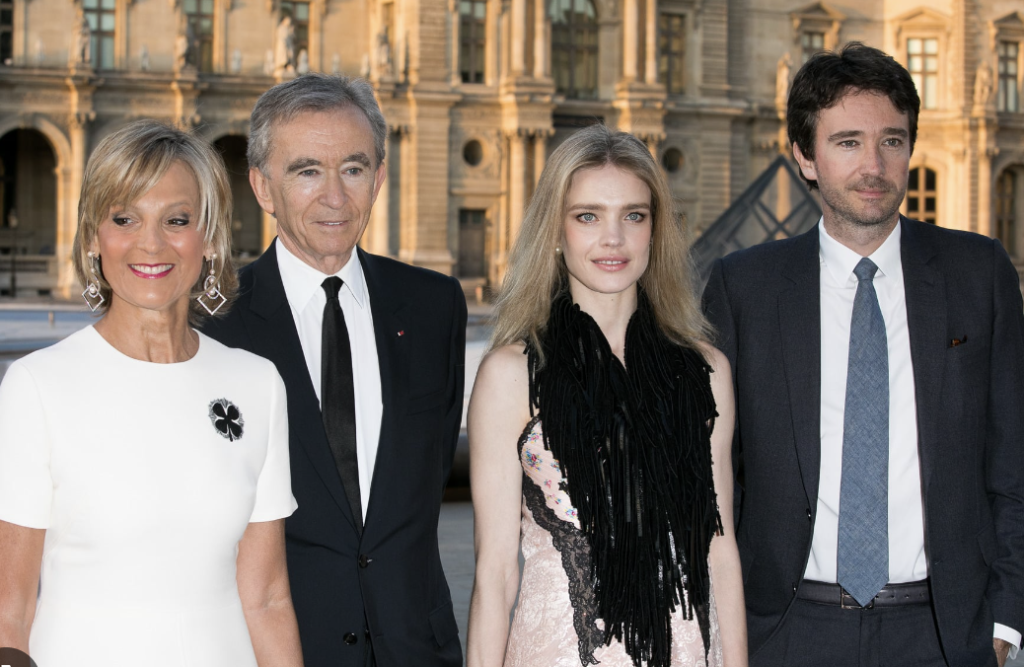Bernard Arnault has begun clearing the executive decks for the next generation—Delphine, Antoine, Alexandre, Frédéric, and Jean—amid growing anticipation of another sale and fresh acquisition targets as the fashion world braces for change.
In the opulent corridors of the fashion world, where luxury and innovation intermingle to weave a fabric of economic wonder, few figures loom as large as Bernard Arnault, the magnate behind LVMH Moët Hennessy Louis Vuitton. As the maestro of this Paris-based empire, Arnault has orchestrated his conglomerate into a behemoth of style and scent, stitching together iconic brands with a deftness that even the most accomplished couturier would envy.
The Intricacies of Succession Planning
Recent whispers, however, indicate that the venerable maestro is contemplating a transition — a delicate handover of sartorial power. As with any titanic enterprise, succession planning at LVMH is no simple matter. The stakes are high, the possibilities myriad, and the legacy immeasurable. Rumors abound of family intrigue, boardroom maneuvers, and strategic alignments, all centered on the question of who will ascend to the gilded throne of this luxury leviathan.
Bernard Arnault, currently the richest person on the planet, has, however, been anything but idle in these affairs. He has orchestrated the placement of his five offspring into pivotal roles within the conglomerate, each honing their acumen under the familial aegis. There exists, therefore, a dynastic element to this tale, a modern meditation on the perennial power struggle within a royal retinue.

The Heirs Apparent
- Delphine Arnault: With a seat at the helm of Christian Dior, her role speaks volumes about her acumen and her father’s aspirations for her.
- Antoine Arnault: As head of communication and image for LVMH and CEO of Berluti, Antoine plays a crucial role in maintaining the empire’s public visage.
- Alexandre, Frédéric, and Jean Arnault: The younger scions, each embedding themselves in various sectors of the LVMH vastness, are crucial constituents in the succession equation.
Yet, as with any narrative tinged with familial undertones, the path forward is not purely paved with gold. The LVMH board must weigh the symbolic continuity of a family-run dynasty against the globalizing demands of a future that is as unpredictable as it is boundless.
Challenges in Leadership Transition
With every potential leader comes a style and strategy uniquely their own, and therein lies the rub. The successor must possess not only the deftness to wield the reins but also the vision to navigate an ever-evolving luxury market. They must be capable of preserving the company’s storied legacy while crafting a narrative that resonates with the modern consumer — no small task in an age where tastes shift with all the capriciousness of the Parisian weather.
Compounding this is the external environment: global economic headwinds, geopolitical events, and digital disruptions that challenge traditional business models. The world watches as LVMH prepares its next act, an operatic transition where the actors are poised, the curtains trembling, and the audience enraptured by the drama unfolding.
The Broader Economic Implications
The implications of this transition are profound, rippling far beyond the insular world of high fashion and luxury goods. Consider the markets: LVMH, as a symbol of economic resilience and innovation, affects investor confidence far afield. Yet, what truly underscores the significance of Arnault’s succession is the broader lesson it imparts about the economic role of billionaires and their empires.
Billionaires and their investments are not mere spectacles for the tabloids; they are pivotal gears in the machinery of the global economy. Their choices, investments, and leadership styles influence employment, innovation, and market dynamics. When an empire like LVMH considers a leadership transition, the reverberations are felt throughout supply chains, affecting everything from high street fashion to the intricate network of artisans and craftsmen who sustain luxurious traditions.
As the narrative of LVMH unfolds, it serves as a masterclass in luxury, leadership, and economic influence — a story worth weaving into the greater tapestry of global trade and commerce, where billionaires are not just inhabitants of an ivory tower but architects of modern economies.